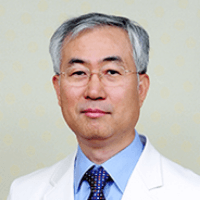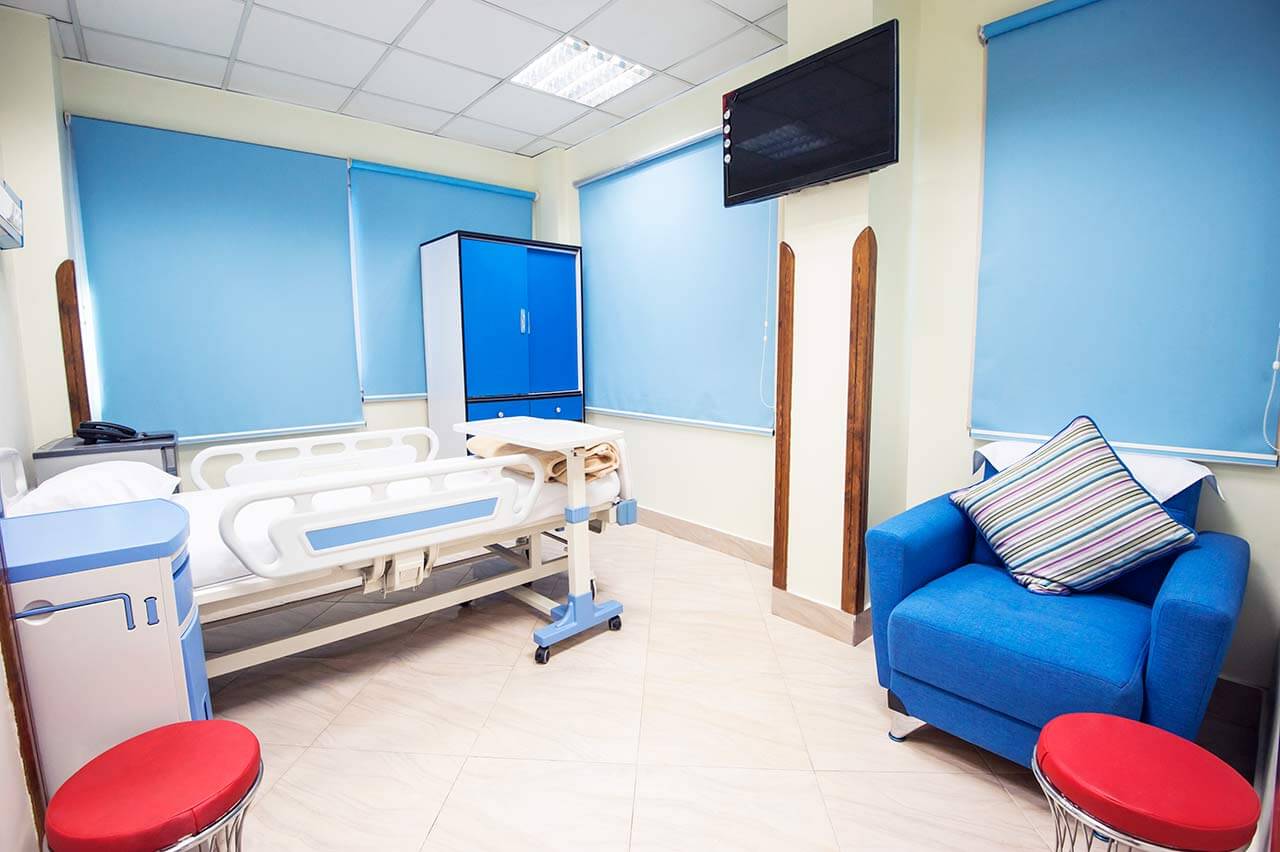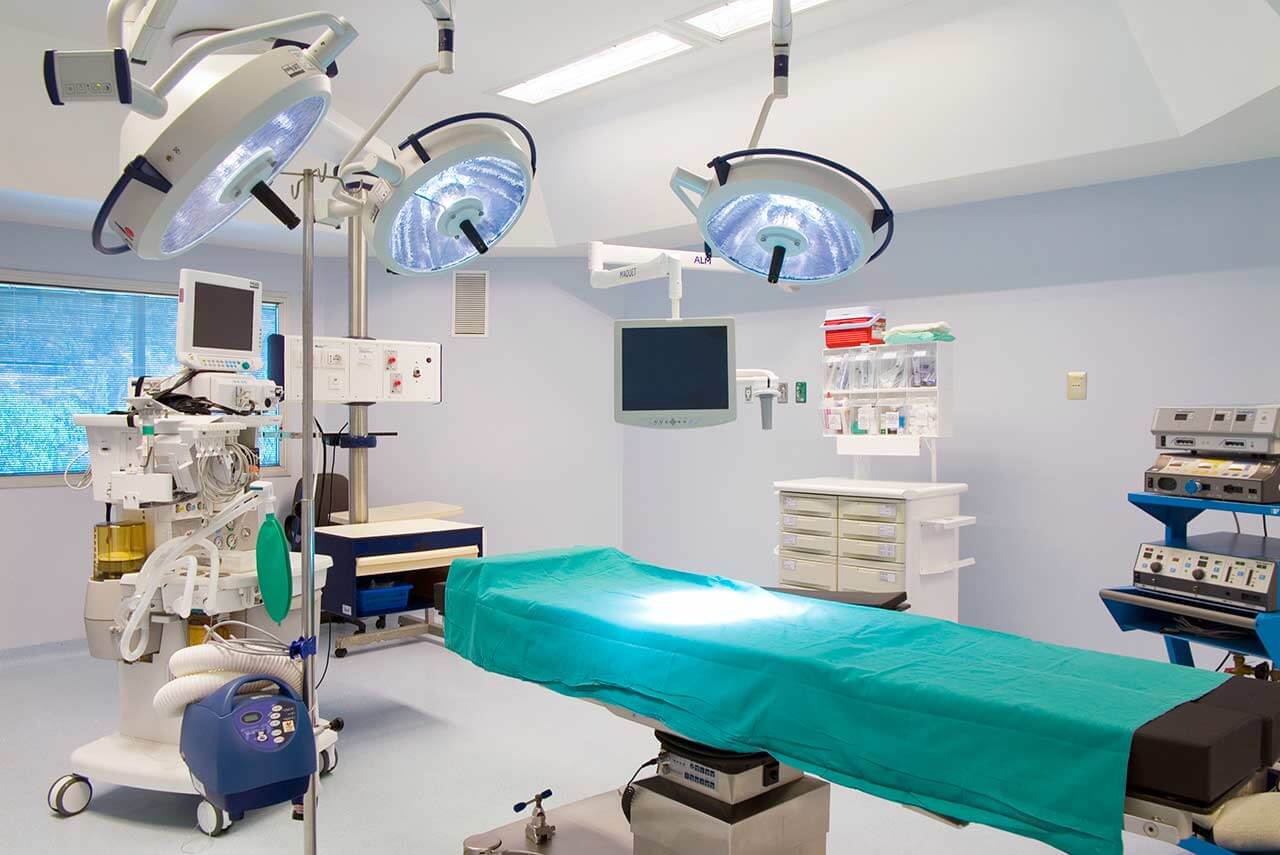
The program includes:
- Initial presentation in the clinic
- clinical history taking
- physical examination
- cardiological examination
- laboratory tests:
- complete blood count
- biochemical analysis of blood
- TSH-basal
- inflammation indicators
- indicators blood coagulation
- measurement of arterial blood pressure
- electrocardiogram
- Holter monitoring (24h)
- echocardiography
- transesophageal echocardiography
- preoperative care
- open cardiac ablation under 3-d mapping under anesthetic
- symptomatic treatment
- control examinations
- the cost of essential medicines and materials
- nursing services
- full hospital accommodation
- explanation of future recommendations
Required documents
- Medical records
- ECG (if available)
- Echocardiography (if available)
Service
You may also book:
 BookingHealth Price from:
BookingHealth Price from:
About the department
The Department of Adult and Pediatric Cardiothoracic Surgery at the Samsung Medical Center offers the full range of services in this field and specializes in the surgical treatment of heart, lung and esophageal diseases. The department has state-of-the-art operating rooms where interventions of any severity are performed. The department is headed by Prof. Dr. med. Kim Dong Ik.
It should be noted that the department is the Korean leader in open heart surgery – 1200 surgical interventions a year. The department is known not only due to the number of operations conducted, but also due to their outstanding results, the lowest mortality rate in the country.
The service range of the department includes:
- Diagnosis and surgical treatment of cardiovascular diseases
- Coronary artery bypass grafting
- Heart valve replacement surgeries (aortic, mitral, tricuspid valves)
- Heart transplantation
- Coronary artery surgery
- Surgical treatment of heart failure
- Surgical treatment of heart diseases in children
- Other services
- Thoracic surgery
- Surgical treatment of lung diseases, including hereditary ones
- Surgical treatment of pleural diseases
- Surgical treatment of mediastinal diseases
- Surgical treatment of pneumothorax
- Surgical treatment of hyperhidrosis
- Surgical treatment of thoracic diseases in children
- Lung transplantation
- Surgery to treat lung cancer
- Other services
- Esophageal surgery
- Surgical treatment of other diseases
Curriculum vitae
- Study of Medicine at the Hanyang University.
- Fellowship at the Medical School of the Osaka University.
- Residency at the Hanyang University Hospital.
- Internship at the Hanyang University Hospital.
Additional Education
- Visiting Professor, Division of Vascular Surgery, Oregon Health Science University (USA).
Clinical and Research Interests
- Therapeutic angiogenesis with the use of stem cells.
- Tissue engineering of vascular prosthetic graft.
- Gene expression in vascular disease.
- Pathogenesis of intimal hyperplasia.
- Pathogenesis of thrombosis.
- Pathogenesis of Buerger's disease.
- Pathogenesis of atherosclerosis.
- Congenital vascular malformations.
Membership in the Academic Societies (selected)
- Editor-In-Chief of the International Journal of Stem Cells.
- President of the Asian Venous Forum.
- Vice President of the Society of Vascular Biomedical Engineering.
- Vice President of the Korean Association of Clinical Ultrasound.
- Director of the Korean Society of Phlebology.
- Chairman of the Organizing Committee of International Union of Phlebologists (2015).
- Executive Board of the Korean Society for Vascular Surgery.
- Editorial Board of the World Journal of Surgical Procedures.
- Advisory Editorial Board of the Journal of Lymphology and Oncology.
- Editorial Board of the International Journal of Angiology.
- Fellow of the American College of Surgeons.
- Fellow of the International College of Angiology.
- Member of the European Society for Vascular Surgery.
- Member of the International Union of Angiologists.
- Member of the International Society of Lymphology.
- Member of the International Society for the Study of Vascular Anomalies.
- Member of the Asian Society of Vascular Surgery.
- Board of the Korean Society of Vascular Surgery.
- Board of the Korean Society of Phlebology.
Photo of the doctor: (c) Samsung Medical Center
About hospital
The Samsung Medical Center was founded in 1994 and soon won the reputation of a medical facility of presidential standards, which it still preserves today. The hospital has 40 departments, 10 specialized centers and a huge Cancer Center with 655 beds.
The medical facility is equipped with advanced equipment (for example, a 32-channel spiral magnetic resonance tomograph and Somatom computer tomograph), as well as with the picture archiving and communication system that provides the highest level of medical care. In addition, the hospital boasts state-of-the-art infrastructure and outstanding medical personnel, which makes every effort to provide the patient with comprehensive first-class medical care, create a friendly attitude, show understanding and sympathy. The hospital constantly develops, monitors all world innovations and is engaged in active research activities.
Thanks to the outstanding treatment results, the hospital has the highest rating and enjoys worldwide popularity. For example, survival rates after liver transplantation and hematopoietic stem cell transplantation in children are among the best in the world. Also, the clinic demonstrates excellent treatment results for oncological diseases and the best survival rates of very premature babies (born on the 25th week of pregnancy) with a weight of only 380 g. The survival rates of very premature babies exceeds 50%, and this result is considered the best in the world.
Thus, the Samsung Medical Center is one of the best hospitals in South Korea and all over the world, known for its comfort and high-quality treatment. The hospital has received many awards, including the award of the Ministry of Health and Social Welfare.
Photo: (с) depositphotos
Accommodation in hospital
Patients rooms
The patients of the Samsung Medical Center live in comfortable patient rooms made in a modern design. Also specially equipped rooms for patients with disabilities are offered. Each patient room is furnished with a comfortable bed, a bedside table, a telephone and TV. The hospital offers free Internet access.
The medical center has an excellent infrastructure: pharmacies, a gift shop, a beauty salon, a bank, a restaurant, a food court, cafeterias, prayer rooms for representatives of different faiths.
Meals and Menus
The medical center offers patients delicious and healthy three meals a day: buffet breakfast, a nutritious lunch and dinner. The menu features a variety of international dishes, including vegetarian ones. In addition, the hospital has several food courts, cafeterias and a restaurant, where one can also taste delicious food and drink either hot or refreshing drinks.
Further details
Standard rooms include:




